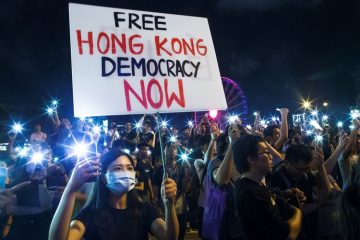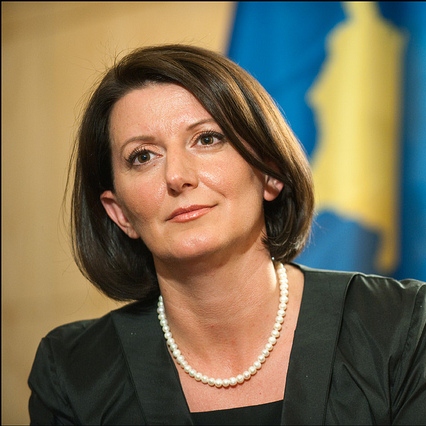
Can the Pro-Democracy Hong Kong Lobby Still Influence Western Foreign Policy?
During the 2019 Anti-Extradition Bill protests in Hong Kong, activists made extensive efforts to internationalize their movement, engaging in public diplomacy and lobbying foreign governments to support their cause. The Hong Kong pro-democracy lobby—a loose coalition of individuals and organizations aiming to steer Western foreign policy in a direction they believe will benefit Hong Kong’s democratic prospects—emerged amidst this unprecedented grassroots mobilization. Four years on, however, the Hong Kong lobby is facing an uncertain future. Activists are striving to overcome the barriers posed by transnational repression and reinvent their image in today’s fraught geopolitical landscape. Two factors explain the success of Hong Kong activists in constructing and consolidating their lobbying infrastructure in 2019. First, the expansion and transformation of the …
The New ‘Worldmakers’: How the 20th Century Black Anticolonial Dialogue Reveals the Strategic Importance of the Milk Tea Alliance
Growing tension in Berlin. A proxy war in Korea. The escalating Space Race. The world—and particularly its realists—focused on the evolving great power competition between the United States and Soviet Union during the Cold War. However, in the shadows of this marquee battle, black leaders such as Kwame Nkumrah, Eric Williams, and George Padmore drove an anticolonial dialogue that sought to transform the international order on their own accord. Their core mission: to reframe sovereignty, reconceptualising it as self-determination and the elimination of racial hierarchy. This weighty conversation, which took place from the 1950s to the 1980s, doesn’t seem related to an Asian meme war in 2020. However, amidst a new, growing Cold War between the U.S. and China, the ‘Milk Tea Alliance’ has emerged as the newest supranational …
Protests in an Age of Globalization: Performance, People Power, and Pathos
Protest in an age of globalization relies on performance. From Hong Kong to La Paz and Santiago to Khartoum, global attention is increasingly captured by mass movements of people, demonstrating strength in numbers against prevailing political and economic systems. Modern protests, however, only work some of the time. Drawing on current events, scholars might consider a protest’s success hinging upon which audience they choose to target and the power of that audience to act. We see differences, for example, between Hong Kong — where protesters engaged the global community with limited effect thus far on Beijing — and protests in Sudan earlier this year — which targeted an old, autocratic leader’s military cadre, but did in fact precipitate a military coup. Has globalization changed protesting? Today’s global stage is nothing new — consider the nationalist movements …
Hong Kong: Have Protester Demographics Changed Following Escalating Violence?
As protests in Hong Kong have become more violent, have the demographics of the protesters changed? Political scientists have argued that a shift toward more violent protest action can alienate moderate protesters. Moderates, in this definition, are those who may share common cause with radicals (or those who embrace violent tactics) but reject those tactics. Once alienated, such moderate protesters tend to withdraw their support from a movement and may refrain from participating in protest action in the future. Hong Kong’s protests seem to have defied this trend. My surveys of protest participants find that the demographic profile of protesters has remained relatively constant even as violence has escalated in the demonstrations. Certain types of protesters who might be expected …

Fighting corruption: Effective examples from surprising places
What could Hong Kong, Liberia, and Kosovo teach us? Perhaps, rather unexpectedly, about successful ways of dealing with public corruption. Corruption is effectively a hidden tax on living and doing business in many emerging democracies and, as a result, is one of the most serious obstacles to deepening democracy and economic development. It is particularly dangerous when corruption turns into a culturally accepted practice.

Discontent in Paradise: Protests in Hong Kong
This weekend, Hong Kong, the newly declared “best city in the world”, celebrated the 15th anniversary of its return to China, and swore in its new leader, Beijing-backed Leung Chun-ying, the third Hong Kong Premier since its re-joining of the mainland. However, events that took place on Saturday and Sunday have indicated that the public mood within Hong Kong is far from universally jubilant. While the official media has been full to the brim of Chinese nationalism-oriented elation, on the Saturday evening many residents of Hong Kong displayed their increasing anger with the actions and dictates of the parent state by protesting outside of the Convention centre where Hu Jintao was due to inaugurate Leung. Protests continued throughout the Saturday …









